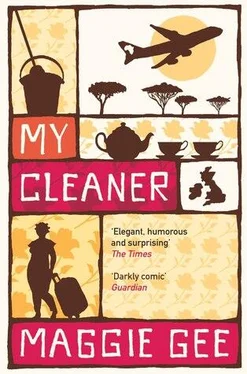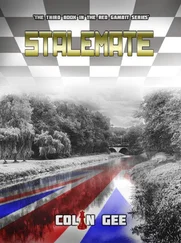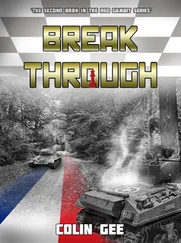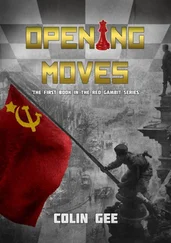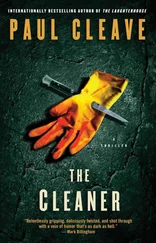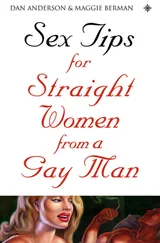The maddening Arab is ringing again, the one who thinks she is Japanese. “There is nobody here called Mistendo,” she snaps, and puts the phone down, as she has before, but this time, because she said the name out loud, it suddenly clicks: of course, he wants Mary. Vanessa never thinks about her surname. Mary has always been simply, well, Mary . How can Vanessa have been so stupid? But she is too busy to call him back. Next time he calls, she will put him through. She returns to her in-tray, and forgets all about it.
Vanessa’s especially busy because she is going to church at eleven, with Mary. In theory she’s looking forward to it, but in practice she fears she is going to cry. Memories of her mother’s funeral, when the village turned out in sympathy, and suddenly she felt part of a multitude, when all her adult life she has been alone, just she and her son against the world.
Yet that is the ideal state for a writer, as she recently told her new intake of students. “Most modern writers are exiles,” she said. “You see exile can be a very personal thing, to do with a kind of willed isolation. I speak from my own experience.” (She was quoting, in fact, from a book she had read.) “How many successful women writers are married? Almost none, I think you’ll find.”
Beardy seemed to bridle when she said that. He stayed behind at the end of the class, pretending to pack up his papers. Once they were alone, he’d taken her on. “Do you think you should be warning these young ladies against marriage?” he asked her, with his old·fashioned, playful twinkle. “I mean, I myself have been through a divorce, but I try not to put my daughters off it. I miss being married. I don’t write any better.”
“I think your writing is improving somewhat,” Vanessa had said, repressively. (She’s never quite told him how good he is, because she finds him a little threatening. His comments in the seminars are too sharp; he is starting to gather a coterie. Older students can be controlling.)
“You’re single, are you?” he smiled at her, but his tone was coarse, bubbling with laughter. “You’ve mentioned a son. But of course you are. Has it helped you write your Pilates books?”
Vanessa’s mouth had gone tight and thin. “I have also written two highly praised novels,” she said. “Exactly what point are you trying to make?”
“I think I’ve made it,” he said, with a laugh, and bowed ironically, and left the room, but at the last moment, he turned back, and said, no longer laughing, apologetic: “In fact, I have read both your novels. I think you’re really talented. But when are you going to write another? Does being single really help us to write?”
And then he was gone, leaving her winded.
And yet, Vanessa knows she’s right. This morning, she needs to be alone, herself, in charge of her desk, in charge of her life, before she can submerge herself in Mary’s.
She wishes she had not agreed to church.
She is changing her clothes — because what do you wear? A skirt, surely, but not a hat, and too much jewellery would look vulgar, but none at all might look a bit bare, so she finds her pearls, and the pink wool suit she wears to chair departmental meetings, and a matching pinky-pearl ring and bracelet — when Mary knocks on the bedroom door. Vanessa’s white silk vest is half over her head. She stares at Mary through the neck-hole.
“You look stunning, Mary. Is that tribal dress? I mean…is it…indigenous?” She is not sure they still talk about tribes. Her voice is muffled by the vest.
“Of course it is not dangerous. It is a gomesi , Miss Vanessa.” It has a wide sash and peaked, puffed sleeves, which stick up from her shoulders like butterfly wings. It is golden bronze. Mary’s skin glows against it.
Vanessa decides not to explain. She slips on her jacket and her pearls. “It’s very nice. You look, well, delightful.”
And Mary smiles back at her appreciatively. “And you, Vanessa, look like a Jamaican—” Vanessa does not know quite how to take this, but Mary continues, “—because, I have noticed, the English do not like to look smart in church. It is not the fashion, for white Christians. Best of all, they like jeans and sandals. They think it makes them look more humble. But Jamaicans and Africans look very smart. We do not like this scruffiness. We do not believe the white Christians are humble. They sit at the front, in the very best seats. Thank you for looking smart, Vanessa.”
Sometimes Mary sounds surprisingly sharp. Vanessa is glad she has cut the mustard.
“Now we must find some food to take,” Mary says, briskly, and sets off towards the kitchen.
“Oh no, Mary, really, we don’t do that,” says Vanessa, laughing once more at Mary’s innocence.
“Because, Vanessa, it is Harvest Festival. The Reverend Andy asked everyone to bring some.”
“Oh, Harvest Festival, wonderful.” Vanessa brightens considerably, remembering long-lost feasts of colour, being sent to school with marrows and apples. And thanks to Mary’s new regime in the kitchen, they soon assemble an impressive display: black and orange plantains, a Savoy cabbage so yellowy green it is almost golden, frilled and tightly-layered like the bodice of a dress, three baking potatoes as big as Easter eggs; a feathery-topped, fluted column of celery.
They pause in the hall, just before they go out, and see themselves framed in the circular mirror. It is a picture of harmony: silver-blonde Vanessa in her pink and pearl, smiling broadly with her new shiny teeth, her white hands clutching the speckled plantains, the pale rod of celery under her armpit, and next to her, the intense dark figure of Mary, dressed in the golden bronze butterfly dress, her hair caught up in a swathe of gold fabric, taller than Vanessa, even in her pink heels, broader than her, but with her arm around her, and it sits on Vanessa’s pink woollen shoulder, surprising her with its heft and weight, and Mary’s other arm holds the green and yellow basket she brought from Uganda as a present for Vanessa, with the cabbage and potatoes brightly peeping out.
“We’re fertility goddesses,” Vanessa says, very taken with this image of the two of them, but Mary looks stern, it is the wrong kind of godliness, so ‘Sisters’, Vanessa tries again, and smiles at the glass, and Mary laughs to herself, and repeats it, so softly that Vanessa hardly hears it.
Sometimes, she thinks, Mary is almost timid.
A moment later, Mary shouts, “Justin!” at a volume that does not seem credible. Vanessa looks at her amazed, but in seconds there appears at the top of the stairs a combed and tidied, pink-faced, Justin, wearing a white shirt and linen blazer his mother hasn’t seen him in since the breakdown.
“Present and correct,” he smiles at Mary.
Mary hands her loaded basket to Justin, and Vanessa stops herself from protesting, for after all, he must be stronger now. The three of them head towards the door. “Mary, we’re going to need umbrellas,” says Vanessa, as the hissing sound of rain comes closer. She looks out of the window: deep metallic-grey, with weeping fringes of navy blue cloud. The wind is rattling the rose against the glass. She opens the door to get a closer look, but as soon as she does she sees Tigger is waiting at the end of the path with his big white van.
He comes down to meet them with a golf umbrella. “Minicab, Madam,” he says to Mary, and the two of them laugh in such an intimate way that Vanessa has to tell herself not to be jealous.
So now we are all here, even the men, Vanessa thinks, bringing up the rear. Justin seems cheerful, though he squints at the rain. She hates the idea of going in the van, but she does not want to make a fuss. She hopes it is not covered in paint and brick dust. Knowing Tigger, it probably is. Though even Tigger looks smart for him, in a sports jacket over a black polo-neck jumper, with Mary Tendo smiling and clutching his arm.
Читать дальше
